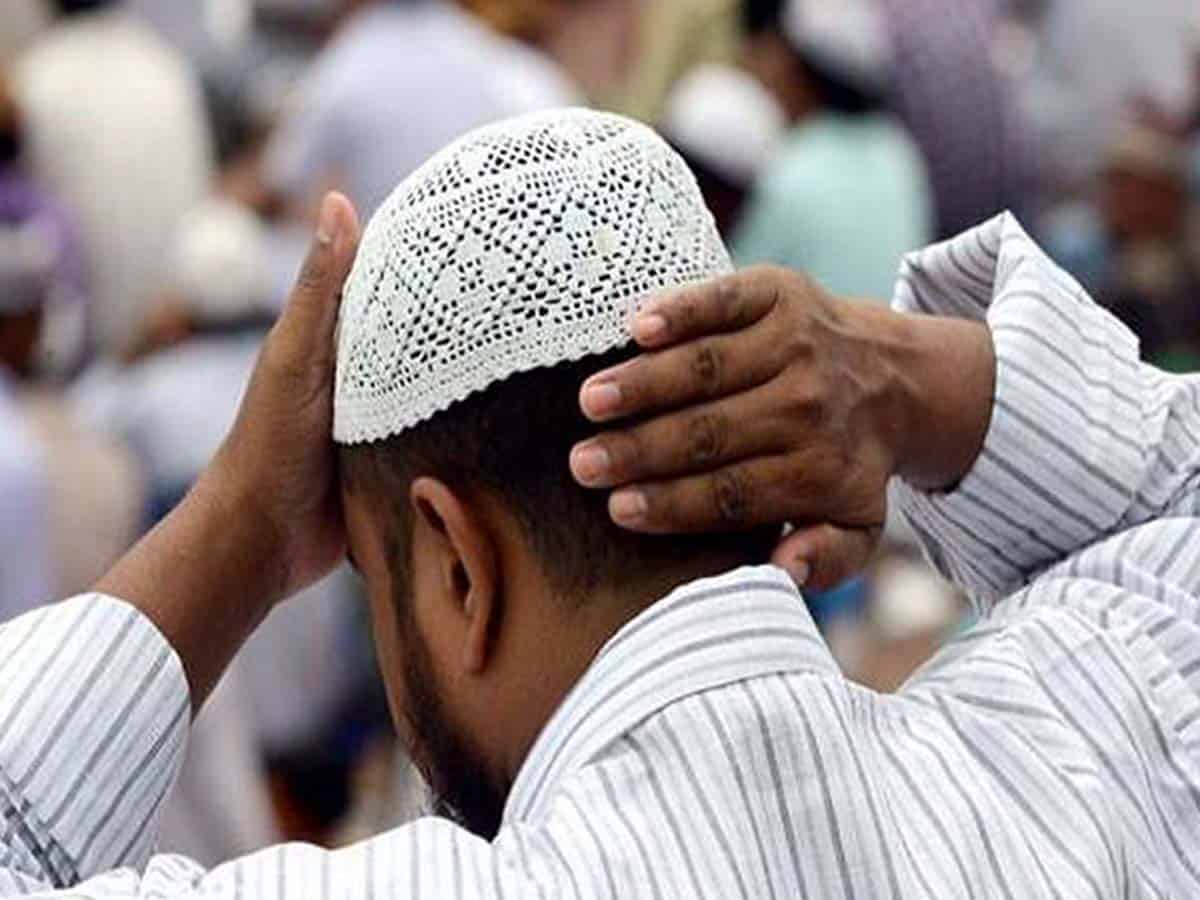Washington: While giving a Friday sermon in a mosque in the USA, a sermoniser talks about the benefits of pandemic. He mentions seven benefits that people can learn from the present circumstances.
First benefit
About the first benefit, he says the situation has made us realize that we are weak and submissive. No human being is all mighty. Allah is the only one who is omnipotent. The most powerful countries in the world like the USA and China are terrified by a virus. The whole world is terrified just by a micro-organism. Even the scientists could not make it out whether this organism is living or something between life and death.
In spite of our modern technology, we cannot save our own lives. This means that there is indeed a creator—Allah (SWT) and we are helpless in front of him.
Second benefit
About the second benefit, the sermonizer says people are leading a reckless life, unmindful of death, indulging themselves in the lushness of life. These types of calamities and tragedies are a wakeup call for humanity to remind that no one lives forever. If people wake up from slumber and realize that they are mortals, and the world is perishable, and if their hearts become soft, that means this is not a calamity, it is a blessing in disguise.
Third benefit
With regard to the third point, he says some people are rich and some are poor. The virus does not differentiate between the rich and the poor. It attacks all of them equally irrespective of religion, status, caste, creed and race. So, it is foolish to have a superiority complex because of any status. Islam conveys the message that all are equally human and come from the same origin. The only thing that really separates one in the eyes of Allah is religiosity.
Fourth benefit
About the fourth point, he says wealth is not an indication of success and happiness. Some righteous and innocent people are struck by calamities, evil and bad people go scot free, it is not like that, both good and bad people can die of calamities but the judgment hereafter will be according to one’s deeds. He quotes a hadith of the Prophet (saw):
“these plagues that you see, they are punishments for some group of people and blessings for the believers.” So, it reminds us of the life hereafter.
Fifth benefit
In point number five, he speaks about the importance of family and friends and also of a system to live a life. This tragedy of coronavirus has made selfish people realize that they need family and friends to look after them when they fall sick. Selfishness is not the way of Islam. A human being needs to love and to be loved.
He says point number five is not only about socializing, but it also shows the importance of civil orders, the law of a country, society and government. Because a country needs a system that governs the rule. It takes care of the people and introduces laws so that there should not be any chaos. In the pre-Islamic era, Arabs were not civilized, after the advent of Islam they got civilized as Islam removed Jahiliya (illiteracy). Islam ruled from China to Andalus, because Islam gave them Khilafa Rashida (the Righteous Caliphs). It gave them political strength, power and showed the very nature of human civilization. If people want to be successful in this world they should come together and should follow law and order.
Sixth benefit
The sixth point is about to believe in destiny (Qadar). The virus pandemic does not come from nowhere. There is some force that predetermines it. Allah says in the Quran “everything we have done; we have created with qadar” (destiny). He gives an example, a person always washes his hands and wears a mask and isolates himself to keep himself safe from the virus. But, still he is affected by the virus. This is called Qadar—destiny written by Allah. Another person, without taking any precautionary measures goes to the epicenter of the virus, and nothing happens to him. But, this does not mean that one should not take precaution. He quotes a hadith of Prophet (saw) says, ‘Tie your camel and put trust in Allah.” That means every precaution must be taken before trusting Allah, even after that, if something bad befalls, it is due to the fate written by Allah.
Seventh benefit
The final and seventh point is about severe diseases like coronavirus which has spread all over the world. The greatest wisdom during this time is that the people have rediscovered their faith. Those who were not religious are becoming religious. He says this is the sign of wisdom. There are numerous verses in The Quran where Allah says:
“And when adversity touches you at sea, lost are [all] those you invoke except for Him. But when He delivers you to the land, you turn away [from Him]. And ever is man ungrateful.”
In another place Allah says “They make dua to me standing, sitting and laying down.”
He emphasizes how Allah dislikes a person for forgetting Him and His help once the distress is lifted. It is not the repentance but the action of being ungrateful that is criticised by Allah. The lesson that we can learn from the tragedy around us, is to fix our relationship with Allah and most importantly, not to forget that He has saved us. By engaging in prayers, charity and good work, we can certainly come out of this as successful.
The sermonizer’s 6th point, where he quotes prophet’s (saw) ‘Tie your camel and put trust in Allah.”, is a big question for today’s Muslim religious leaders who object for praying in homes five times including the weekly Jumma prayer, during the times of plagues. The Holy Quran respects a man’s life. Even haram (prohibited) food has been made halal (permissible) to save a life [Surah al-Maa’idah 5:3]

